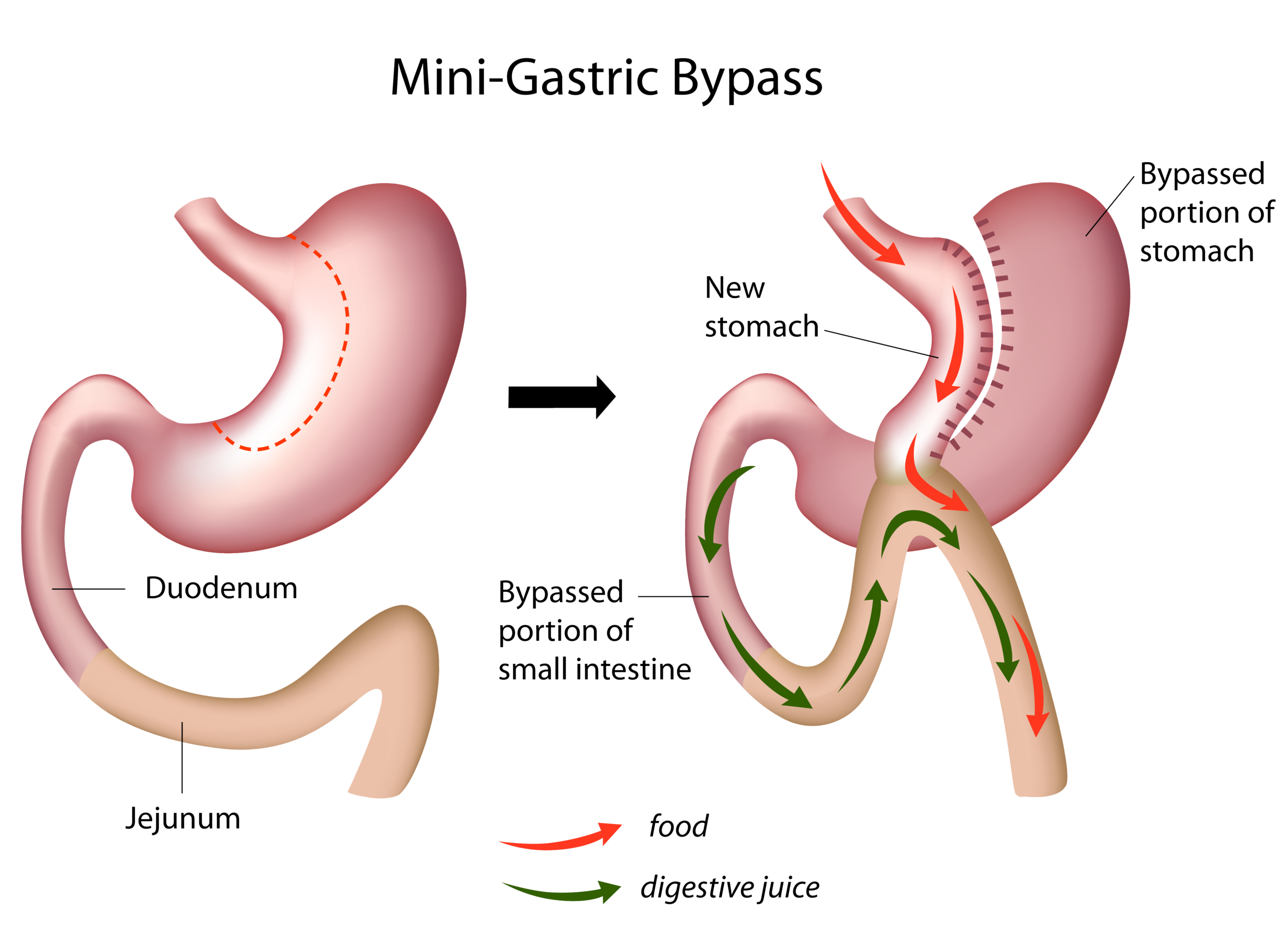Simpler and less invasive technique than the widely performed gastric bypass.
The mini-gastric bypass procedure is restrictive and malabsorptive, which means patients feel fuller faster, less food is ingested and less calories and minerals are absorbed. Although it is really similar to a gastric bypass, this procedure is simpler and less invasive since there is less re-routing of the intestines. Around 75% of the stomach is removed and a gastric tube is created to be linked to the small intestine about 150 cm from its starting point, therefore shrinking its absorption surface.
The excess weight loss with the mini-gastric bypass can be up to 75% within one year with proven improvement in the overall health of the patient. The results from this procedure can be usually compared to those achieved by gastric bypass patients, and sometimes is preferred due to lower likelihood of complications.
EXCESS WEIGHT LOSS:
UP TO 75%.
TYPE OF PROCEDURE:
RESTRICTIVE & MALABSORPTIVE.
PERFORMED BY LAPAROSCOPY.
REVERSIBLE.
What are the ADVANTAGES?
Induces excellent weight loss of up to 75% within the first 18 months.
Simpler and shorter surgical time compared to the gastric bypass.
Causes favorable changes in the Ghrelin hormone that suppress hunger and increases satiety.
Easily reversible.
It does not involve any type of prosthesis so there is no possibility of body rejection.
Patient is very independent and does not require constant doctor visits and calibrations.
Proven improvement in any obesity related illnesses such as hypertension and diabetes type 2.
Performed by laparoscopy, which means shorter recovery time, fewer and smaller incisions and less pain.
what are the POSSIBLE RISKS/CONS?
Percentage of patients who present complications is relatively small and in most cases are easily preventable and treatable in the long term. MGB potential risks and side effects are similar to those of the gastric bypass:
There is a risk that weight loss will not be as dramatic as with a normal gastric bypass.
Possibility of long-term vitamin and iron deficiency.
Ulcers, gastritis and anemia among the possible side effects.
Increased risk of gallstones due to rapid weight loss.
Possibility of Dumping syndrome when eating sweet foods, including symptoms like nausea, reflux and diarrhea.
Patient monitoring for a few years is advised to prevent any complications in the long term.
To fully assess and understand all possible complications and side effects, it’s important to talk your bariatric surgeon in regards to your specific health condition.
Interested in the Mini-Gastric Bypass? Let us help!

